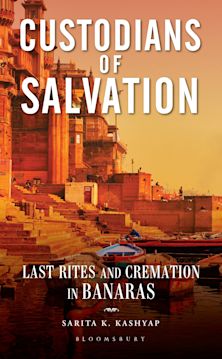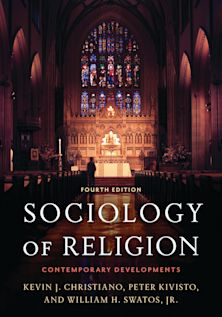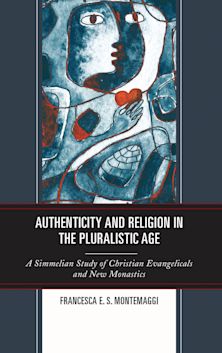- Home
- ACADEMIC
- Sociology
- Sociology of Religion
- Listening, Religion, and Democracy in Contemporary Boston
This product is usually dispatched within 2-4 weeks
- Delivery and returns info
-
Flat rate of $10.00 for shipping anywhere in Australia
You must sign in to add this item to your wishlist. Please sign in or create an account
Description
This book is a study of religious practices of listening in the Boston area. Through ethnographic study of a variety of religious communities, with an extensive focus on Quaker listening, it argues that religious practice shapes our habits of listening by creating a plurality of regimes of listening across Boston’s landscape. These practices, moreover, cultivate specific dispositions, as well as distinct patterns of religious and democratic virtues. Through these dispositions and virtues, religious listening facilitates a diverse range of forms of democratic engagement, and varied contributions to the pursuit of social justice. William Young provides an innovative interpretation of these religious practices. It argues that insofar as religious listening helps practitioners to extend and amplify their listening, and makes them more responsive to their communities, it creates a social mode of embodied receptivity and agency. Through both their listening and their actions, these groups express their conceptions of divinity, embodying divine attributes and activity within the sociopolitical realm—serving as God’s ears within the world. It is by interpreting their practices as creating modes of social discipline, reception, and agency that the book explicates the full significance of religious listening, in its adaptations and extensions of our aural capacities, and their implications for sociopolitical life.
Table of Contents
Introduction
Chapter 1: Heavenly Sounds in the Earthly City: Music and Religious Regimes of Listening
Chapter 2: Listening in the Spirit: Practices of Communal Formation
Part II: Religious Listening and the Pursuit of Democracy
Chapter 3: The Paradoxes of Religious and Democratic Virtue
Chapter 4: Hearing the Cry: Listening and Civic Engagement
Chapter 5: Defiant Obedience: Rethinking the Acoustics of Boston’s Religious Life
Chapter 6: Religion, Listening, and the Acoustics of Democracy
Product details
| Published | 01 Nov 2018 |
|---|---|
| Format | Hardback |
| Edition | 1st |
| Extent | 190 |
| ISBN | 9781498576086 |
| Imprint | Lexington Books |
| Dimensions | 234 x 161 mm |
| Series | Ethnographies of Religion |
| Publisher | Bloomsbury Publishing |
About the contributors
Reviews
-
This ethnographic study of several Christian and Jewish congregations in contemporary Boston is informed by an extensive interdisciplinary consideration of religious and political theory, philosophy, and ethnomusicology. Young (Endicott College) offers a central thesis arguing that religious institutions foster distinctive habits of listening, where believers serve as “God’s ears” and individually and collectively adopt a divinely inspired response to the world. Religion instills virtues (hospitality, patience, humility, steadfastness) that resonate with democratic virtues to motivate the faithful to build community, engage neighbors, and promote social justice. Young anatomizes the dimensions and typologies of religious listening, religious and democratic virtues, the organizational structure of congregations and the relationship to democratic action, the varieties of musical listening, the forms of religious listening in prayer and liturgy, and the dialectic of obedient versus autonomous listening. The example of a small group of Quakers who gather weekly for silent prayer and a peace witness at the gates of a suburban defense contractor provides a powerful account of the “obedience to the truth”—an improvisational listening that moves these Friends to religiously inspired, democratic action. Young has created an indispensable guide for the study of religious listening and democracy.
Summing Up: Essential. Upper-division undergraduates through faculty.Choice Reviews
-
Many theologians talk about talking; in this highly original and important study, Willie Young listens to listening. Drawing on a wealth of ethnographic data and with a deftness of theological and philosophical touch, he explores how people in faith communities learn to listen, how their listening can make a difference to civic life as they listen to their neighbours—and what it means to listen with “God’s ears” in a contemporary city. His work produces exciting new resonances—not only in philosophical, political and theological accounts of listening, but also in wider discussions of how faith is embodied within the democratic body politic.
Rachel Muers, University of Leeds
-
Young persuasively and successfully interweaves wisdom from American Transcendentalism, Christian ethics, and Jewish philosophy in ways that will surprise most readers. More importantly, Young demonstrates how music forms citizens to attune themselves toward both the neighbor and the stranger. This book is necessary reading for any scholar interested in civic engagement, radical democracy, and religious ethics.
Jacob L. Goodson, Southwestern College


































